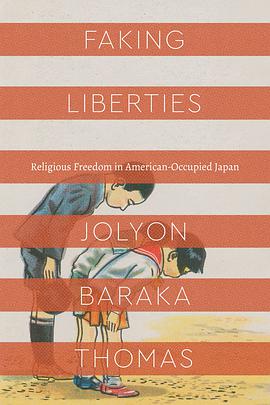Faking Liberties
Douban
Religious Freedom in American-Occupied Japan
Jolyon Baraka Thomas
visão geral
Religious freedom is a founding tenet of the United States, and it has frequently been used to justify policies towards other nations. Such was the case in 1945 when Americans occupied Japan following World War II. Though the Japanese constitution had guaranteed freedom of religion since 1889, the United States declared that protection faulty, and when the occupation ended in 1952, they claimed to have successfully replaced it with “real” religious freedom.
The first half of the book examines how competing interest groups advanced very different understandings of religious freedom during the time that Japan’s first modern constitution was in effect (1890–1945). The second half focuses on the shorter period of the Allied Occupation of Japan (1945–1952), when the U.S.-led occupiers aimed to reconfigure Japanese religious and political life by eradicating “State Shinto” and inculcating a “desire for religious freedom” in Japan’s citizenry.